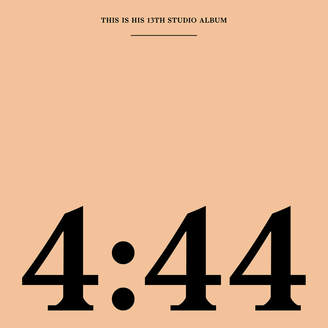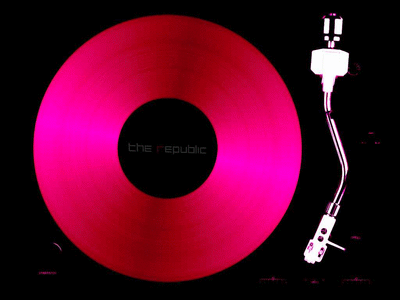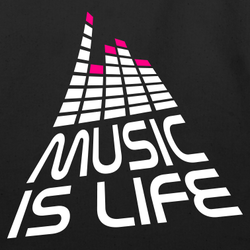
Likes: The Story of O.J., Smile
Overall: Jay-Z's reflective, vintage-ambiance album may reveal more about him than he intended
"Can you still be a rapper at 50-years-old?," my father asked in reference to hip-hop paragon Jay-Z, who'll be 48 in a few months. I said "Given that rap is young in comparison to the other genres, there's not a precedent for what would be odd in regard to age." Jay-Z's laid the groundwork for many things in his career; now, he shows what it looks like to still be thriving in a "young man's game" on the cusp of a golden anniversary with his 13th album, 4:44. Developmental psychology submits that the late 40's to early 60's is a time of reflection that often leads to self-loathing, a "midlife-crisis" and/or a needling desire to contribute to the next generation. 4:44 seems to be the "middle-adulthood" stage on wax. Jay-Z mulls over his egomaniacal ways, marital transgressions and hinky friendships (ex. "Kill Jay-Z," "Bam," and the title track). Cuts like "The Story of O.J." and "Family Feud" discuss the perils of cultural dissension, and urge for communal wealth as an attack on generational poverty. In respect to the music industry, he implores his fellow artists not to depend on the suits. Taking no prisoners, he mentions several handlers and executives by name. The most striking exclaim is at Prince's estate lawyer, Londell McMillan, whom Jay-Z scathingly accuses of exploitation (i.e. "Caught Their Eyes").
Also on "O.J." and "Feud," Jay-Z expresses his discomfort with being ridiculed and rejected by those he calls himself guiding. In the past, these kinds of sentiments were packaged with glamorous retorting braggadocio. Here, the reserved delivery insinuates a genuine hurt. Yet, there's still a hint of self-righteousness that makes you ask "Can you take yourself off of the cross? We need the wood." On "Smile," he raps: "God sent me to break the chain...N*ggas will rip your sh*t off TIDAL just to spite you; Ahh what did I do, except try to free you? N*ggas will love you, but hate you 'cause they can't be you."
The hint becomes a flagrant musk on "Moonlight." Lines encouraging wiser business choices and a collective effort to revitalize and re-authenticate rap, collide with those of condescension. "Moonlight" follows the Damian Marley-featured "Bam," which marks a meaningful turn on the album. Jay-Z declares "F*ck all this pretty Shawn Carter sh*t, n*gga, Hov! Shawn was on that gospel shit...sometimes you need your ego." He feverishly renounces his previous presence and regresses to the persona he vowed to "Kill" on the opening track. Moments later, he merrily reminisces about his street days on "Marcy Me." It's like he got antsy, anxious and uncomfortable in the realm of culpability, so he hardened back to a familiar devil. Considering this and his age at the time of the boneheaded incidents he cites, what seems like "midlife on wax" is actually an accidental illustration of the outcomes of extended adolescence.
Musically, Jay-Z's records are usually bombastic, theatrical and saucy. 4:44 is arguably distinctive, as it has an understated and composed quality. Principal producer Ernest "No I.D." Wilson reportedly stated that many of the samples used were from Jay-Z's current playlist. Most of them are from the 1960's and 1970's and are stylistically diverse: progressive and psychedelic rock, jazz, funk, soul, reggae and gospel. The selections are at the forefront and allowed to retain their personality, cementing the album's warm, accessible and vintage feel. This also helps set the mood for revelation.
Though 4:44 is only 37 minutes, you feel like you've covered a lot of land. It may not be particularly catchy, but it's antique and content keep you in place.


 RSS Feed
RSS Feed